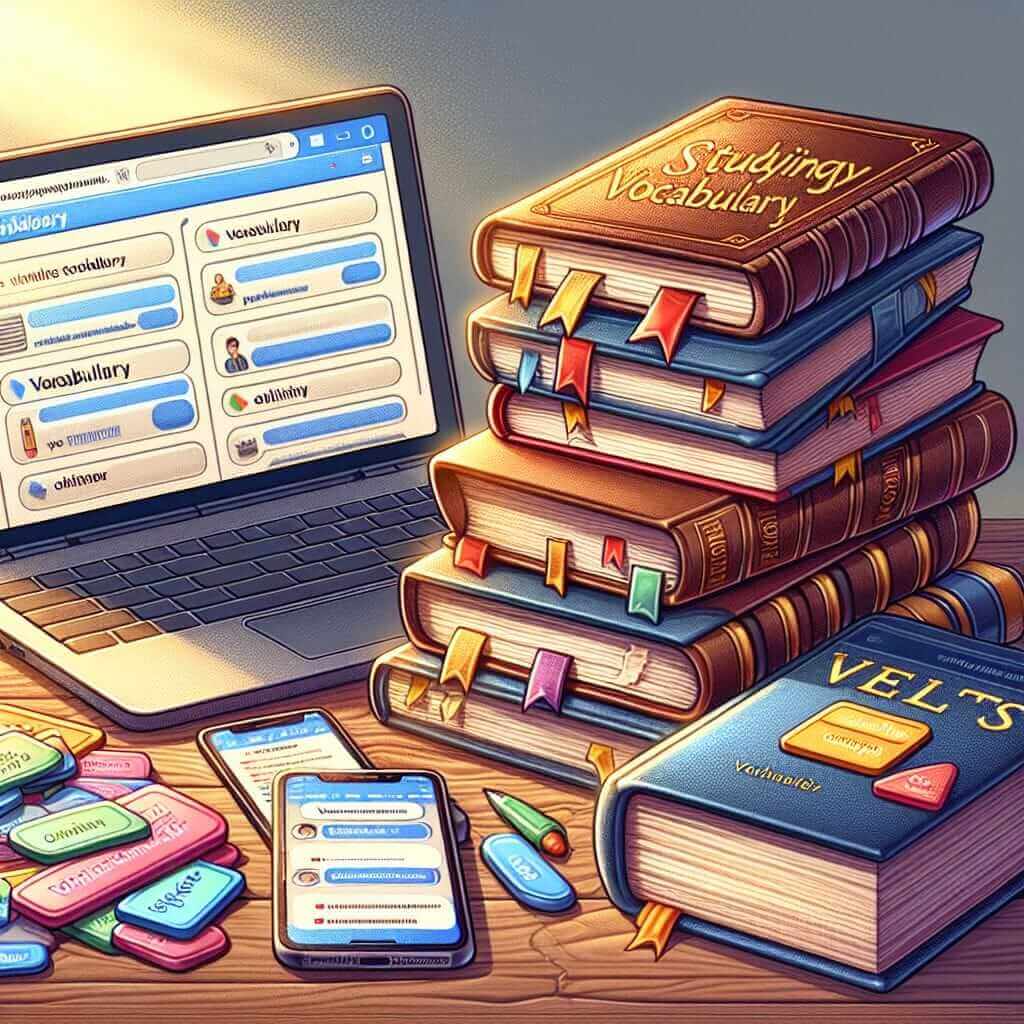The Importance of Vocabulary in IELTS
As an IELTS instructor with over two decades of experience, I can confidently say that a strong vocabulary is crucial for achieving your desired band score. It impacts all four sections of the exam:
- Listening: Understanding a wider range of vocabulary helps you comprehend the recordings more effectively.
- Reading: A strong vocabulary allows you to quickly grasp the meaning of complex texts and answer questions accurately.
- Writing: Using a variety of vocabulary demonstrates your language proficiency and enhances your writing style.
- Speaking: A rich vocabulary enables you to express yourself fluently and precisely, showcasing your communication skills.
Effective Strategies to Improve Your IELTS Vocabulary
1. Immerse Yourself in English:
The more you encounter English, the more words you’ll learn. Make English a part of your daily life:
- Read Widely: Explore diverse materials like books, newspapers, magazines, and online articles on topics that interest you.
- Listen Actively: Engage with English through podcasts, news broadcasts, movies, and TV series.
- Speak Regularly: Practice speaking with native speakers or language partners to apply your vocabulary in real-life conversations.
2. Learn Vocabulary Strategically:
Don’t just memorize lists of words. Aim for deep understanding and practical application:
- Focus on Collocations: Learn words in context and pay attention to how they combine with other words. For example, “heavy rain” is more natural than “strong rain.”
- Use Word Families: Explore different forms of a word (noun, verb, adjective, adverb) to expand your vocabulary base.
- Keep a Vocabulary Notebook: Jot down new words, their definitions, example sentences, and collocations.
3. Utilize Resources Effectively:
Leverage valuable resources to support your vocabulary building:
- IELTS Vocabulary Books and Websites: These provide structured learning materials and practice exercises tailored to the exam.
- Dictionaries and Thesauruses: Look up unfamiliar words and discover synonyms and antonyms to broaden your lexical range.
- Flashcards: Create flashcards with words on one side and definitions or example sentences on the other for effective memorization.
 IELTS Vocabulary Resources
IELTS Vocabulary Resources
Applying Vocabulary in IELTS: Examples and Tips
Writing Task 2 Example:
Topic: Some people believe that technology has made our lives easier. Others disagree and think it has made our lives more complex. Discuss both views and give your own opinion.
Vocabulary Enhancement:
- Instead of “easier,” consider using “more convenient,” “more efficient,” or “less demanding.”
- Instead of “complex,” you could use “intricate,” “complicated,” or “challenging.”
Speaking Part 2 Example:
Describe a time you used technology to learn something new.
Vocabulary Enhancement:
- Instead of “used technology,” you could say “utilized a mobile app,” “accessed online resources,” or “enrolled in an online course.”
- Instead of “learn something new,” consider “acquire a new skill,” “gain knowledge,” or “broaden my understanding.”
Tips for Success:
- Don’t Overuse Complex Vocabulary: Focus on using words accurately and naturally.
- Practice Paraphrasing: Develop the ability to express ideas in different ways.
- Get Feedback: Have your writing and speaking evaluated by a teacher or tutor to identify areas for improvement.
Conclusion
Enhancing your vocabulary is an ongoing process, but it is essential for achieving success in the IELTS exam. By incorporating these strategies and resources into your study plan, you can build a strong vocabulary that will allow you to communicate effectively and confidently on test day. Remember, consistent effort and a strategic approach are key to unlocking your vocabulary potential and achieving your IELTS goals.


